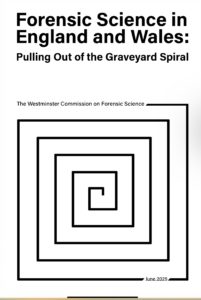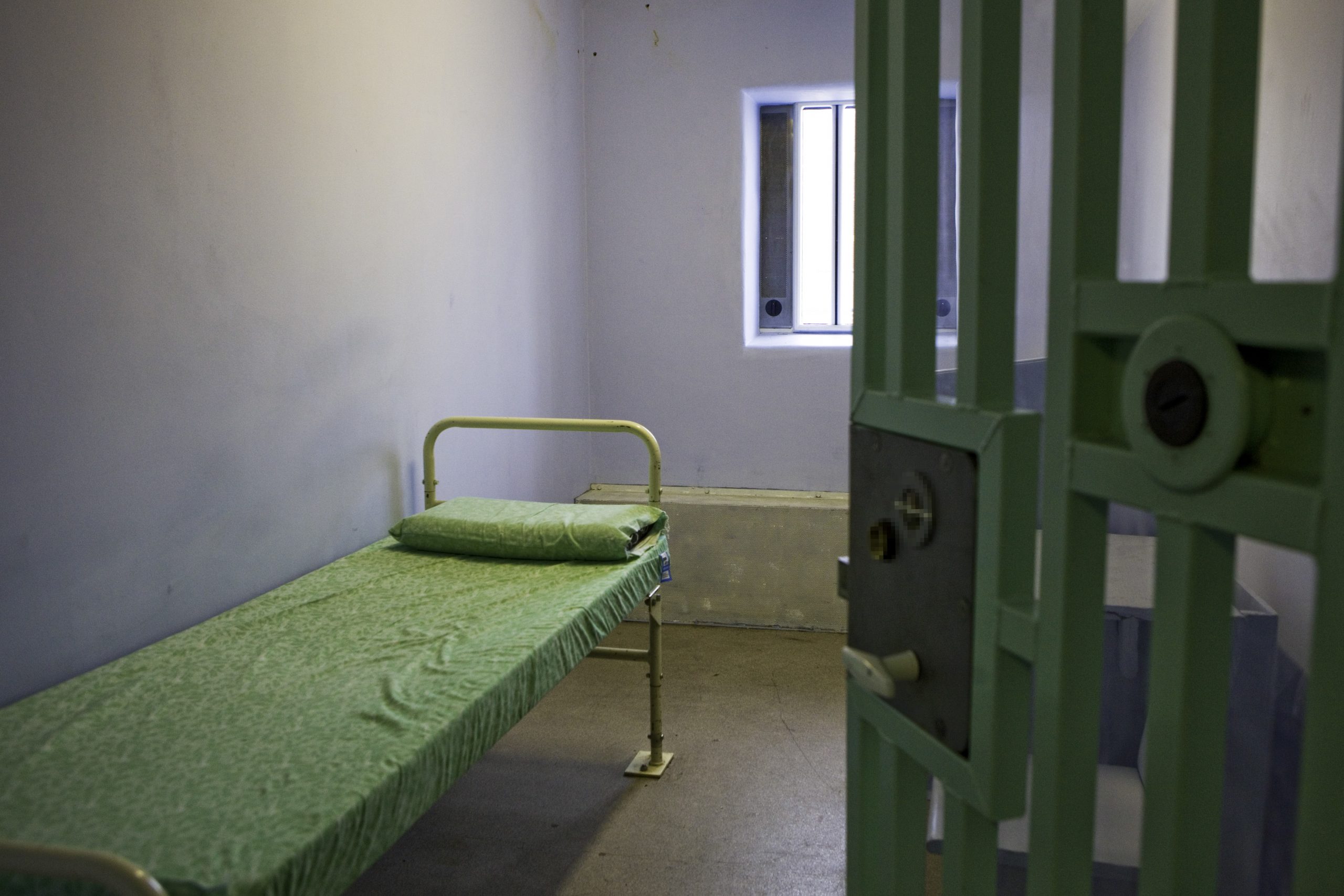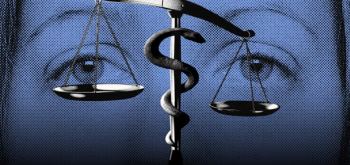A three-year inquiry set up by the All-Party Parliamentary Group on Miscarriages of Justice into forensics has concluded that the sector is in a ‘graveyard spiral’ leading to poor police investigations, increasing unsolved crimes and more wrongful convictions.
The Westminster Commission on Forensic Science, chaired by Professor Angela Gallop and Professor Lady Sue Black, publishes its report today highlighting the crisis in forensics which is at the heart of so many miscarriages of justice.
Professor Angela Gallop: ‘Forensic science in England and Wales as currently configured isn’t working for anyone – not for the police, not for the lawyers or for the courts, not for the scientists themselves, and not for the general public who get caught up in the criminal justice system. Like a plane hurtling downwards in what has become known as a ‘graveyard spiral’, with the pilot in desperation making increasingly erratic decisions, it can only be a short time now before it impacts the ground.’
 The report highlights the devastating impact of reckless policy decisions compounded by cuts in this area that have led to this ‘stark trajectory’. The Westminster Commission argues that attempts to correct course over the last decade, such as bringing more science under the control of the police, have only served to tighten the spiral. Professor Gallop says: ‘The increased risk of miscarriages of justice is self-evident and the potential for investigative failures leading to further injustices is continuing to grow.’
The report highlights the devastating impact of reckless policy decisions compounded by cuts in this area that have led to this ‘stark trajectory’. The Westminster Commission argues that attempts to correct course over the last decade, such as bringing more science under the control of the police, have only served to tighten the spiral. Professor Gallop says: ‘The increased risk of miscarriages of justice is self-evident and the potential for investigative failures leading to further injustices is continuing to grow.’
- Forensic Science in England and Wales: Pulling Out of the Graveyard Spiral is published by the Westminster Commission on Forensic Science, set up by the APPG on Miscarriages of Justice
- Commissioners: Professor Angela Gallop CBE; Professor Lady Sue, Baroness Black of Strome, Dr Philip Avenell, Katy Thorne KC, Professor Carole McCartney, Glyn Maddocks KC (Hon), Dr Jon Robins
Kim Johnson MP, chair of the APPG on Miscarriages of Justice, welcomes the report: ‘There have been several shocking reminders of the urgent need to address this issue – from the Post Office Horizon scandal to the exonerations of Andrew Malkinson and Peter Sullivan, both of whom spent years wrongly imprisoned. These cases are not isolated incidents but symptoms of deep, systemic failings in our criminal justice system. We owe it to victims, their families, and the wider public to demand transparency, accountability, and meaningful reform. We must see the government act on this report without delay to restore trust and prevent future injustices.’
The Westminster Commission makes 34 urgent recommendations, including:
- The government to immediately stabilise existing forensics provision and develop a plan to re-create the market from the current virtual monopoly
- An immediate halt in the expansion of police in-house forensic provision
- A national forensic strategy aiming in the long-term to remove forensic science provision from police oversight
- The creation of a new National Forensic Institute as a central authority on forensic science and to help rebuild its scientific credentials
- Legal aid to be more readily available for defence experts to help ensure a meaningful equality of arms
- The CCRC must have permanent staff members from scientific backgrounds and be much more ready to include forensic science in its re-investigation strategies
- The creation of a national storage capacity for evidence independent of the police
Evidence gathered by the commission shows that our system is continuing to fail not only to ensure the prevention of miscarriages of justice, but their speedy identification and resolution when they do occur. The report calls for a culture change at the miscarriage of justice watchdog, the Criminal Cases Review Commission, replacing the ‘complacency in respect of a lack of scientific knowledge and understanding’ among CCRC staff.
The report also highlights the imminent collapse of the forensics market – which initially showed such promise but is now heading toward a monopoly of ‘last man standing’. No new providers dare enter this now ‘unprofitable and dysfunctional’ market, which also has high barriers to entry. Yet the regulator has been unable to enforce their accreditation timetable which ensures quality standards for fear of widespread disruption when providers (including the police) fail to reach them.
Lady Sue Black: ‘For the last decade and more, we have warned of rapid decline in what was once a capability that led the world. To pull it out of this graveyard spiral at an 11th hour, will require unflinching leadership, serious investment and united commitment. If we are to truly see equality of arms in our courtrooms and properly serve justice, then science must remain impartial and independent.’







